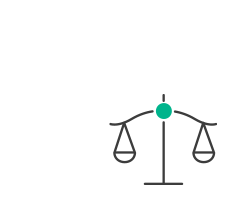
THE GERMAN SUPPLY CHAIN DUE DILIGENCE ACT
Everything from a single source
The Supply Chain Due Diligence Act brings with it numerous challenges and opportunities and aims to create more transparency and more responsible action along the supply chain. We offer you a comprehensive solution for the legally compliant implementation of the requirements of the Supply Chain Due Diligence Act:



Is my company affected by the supply chain due dilligence act?
Regardless of the sector, the following applies: Internationally active companies with headquarters or branches in Germany that employ more than 3,000 or 1,000 employees are affected:
- since January 2023 for companies with more than 3,000 employees and
- since January 2024 for companies with more than 1,000 employees
Watch out for the snowball effect:
Companies with fewer than 1,000 employees are also responsible for complying with human and environmental rights if they are part of the supply chain of directly affected companies. In this case, suppliers must prove to their major customers on request that they are acting sustainably and in compliance with the supply chain due dilligence act.
Due diligence obligations under the Supply Chain Act
Current Posts regarding the supply chain due dilligence act
Your personal contacts


YVONNE BAHKE
Dipl. Jur. (Univ.)Project Manager Sales
Referentin Lieferkettenrecht
y.bahke@eticor.com
+49 6022 2656 – 139
THOMAS TESCHNER
Ass. jur.Legal Compliance Expert
t.teschner@eticor.com
+49 6022 2656 – 120
